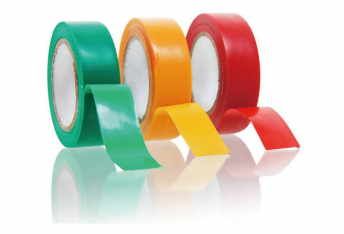The Essential Guide to Industrial Floor Tape Enhancing Safety and Efficiency
In industrial environments, safety and organization are paramount. One of the simplest yet most effective tools to ensure both is industrial floor tape. This versatile product is not only an essential component for guiding foot and vehicle traffic but also plays a crucial role in meeting safety regulations and enhancing overall efficiency in workplaces. In this article, we will explore the various types and applications of industrial floor tape, as well as its benefits and installation tips.
Types of Industrial Floor Tape
Industrial floor tape comes in various types, each designed for specific applications and environments. The most common types include
1. Warning Tape This type is typically in bright colors like yellow or red and is used to delineate hazardous areas. Warning tape helps in visually communicating potential dangers, such as wet floors, equipment zones, or areas that require caution.
2. Color-Coded Tape Many industries utilize color-coding to signify different purposes or areas. For example, blue tape may indicate a walk area, while green could signify safe zones. Color-coded tape helps to streamline processes and increase efficiency by clearly directing personnel.
3. Anti-Slip Tape Safety is a top priority in any industrial setting. Anti-slip tape is designed to provide extra traction in areas prone to spills or treacherous footing. This type of tape is often used in walkways, staircases, and ramps to reduce the risk of slips and falls.
4. Reflective Tape In low-light conditions, reflective floor tape can significantly enhance visibility. This type is particularly useful in warehouses or factories where visibility may be compromised. It helps to alert workers to pathways or hazardous areas during nighttime or in dimly lit spaces.
Benefits of Industrial Floor Tape
The use of industrial floor tape offers numerous advantages for both employers and employees
. Here are a few key benefits1. Improved Safety One of the most significant benefits of floor tape is its ability to enhance safety in the workplace. By clearly marking hazardous areas, pathways, and storage zones, businesses can reduce the risk of accidents and injuries.
industrial floor tape

2. Increased Efficiency Industrial floor tape helps to streamline operations by directing traffic flow. By establishing designated areas for foot and vehicle traffic, companies can improve workflow and minimize congestion.
3. Cost-Effective Solution Compared to other safety measures, floor tape is a cost-effective investment. It is relatively easy to apply, requires no special equipment, and can be quickly replaced if damaged.
4. Versatile and Durable Industrial floor tape is designed to withstand the wear and tear of busy work environments. It adheres well to various surfaces, including concrete, wood, and metal, making it suitable for a wide range of applications.
Installation Tips
Installing industrial floor tape is a straightforward process, but there are several tips to ensure optimal results
1. Clean the Surface Before installation, thoroughly clean the surface to remove dust, grease, or debris. A clean surface ensures proper adhesion.
2. Measure Accurately Take precise measurements of the areas you need to tape. This will help avoid errors and ensure a professional appearance.
3. Apply Firmly When applying the tape, press it down firmly to eliminate air bubbles. Use a roller or a similar tool to secure it in place.
4. Allow for Curing Depending on the type of tape and the surface, allow the tape to cure for the recommended time before exposing it to foot or vehicle traffic.
In conclusion, industrial floor tape is a practical and effective solution for enhancing safety and operational efficiency in various industrial settings. By understanding the different types, benefits, and proper installation, businesses can foster a safer and more organized workplace. Investing in quality floor tape ultimately pays off by reducing accidents, improving workflow, and ensuring compliance with safety regulations, making it an indispensable tool for any industrial environment.
-
The Versatility of Cloth Insulation TapeNewsApr.07,2025
-
The Power of Self Amalgamating Silicone TapeNewsApr.07,2025
-
The Importance of Weatherstrip Seal: Your Ultimate Protection SolutionNewsApr.07,2025
-
Tape Electrical Insulation: A Reliable Solution for Your Electrical NeedsNewsApr.07,2025
-
Discover the Wonders of Electrical Splicing TapeNewsApr.07,2025
-
Discover the Versatility of PVC Electrical TapeNewsApr.07,2025
